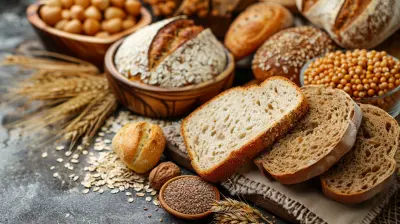Plant-Based Nutrition for Holistic Wellness
11 June 2025
Have you ever wondered if switching to a plant-based diet could boost your energy, improve your health, and even bring a sense of balance to your life? Well, you're in the right place! A plant-based lifestyle isn't just about eating more greens—it's about fueling your body with vibrant, whole foods while embracing a holistic approach to wellness.
In this guide, we'll break down everything you need to know about plant-based nutrition, its incredible health benefits, and how you can transition smoothly without feeling overwhelmed. Let’s dive in! 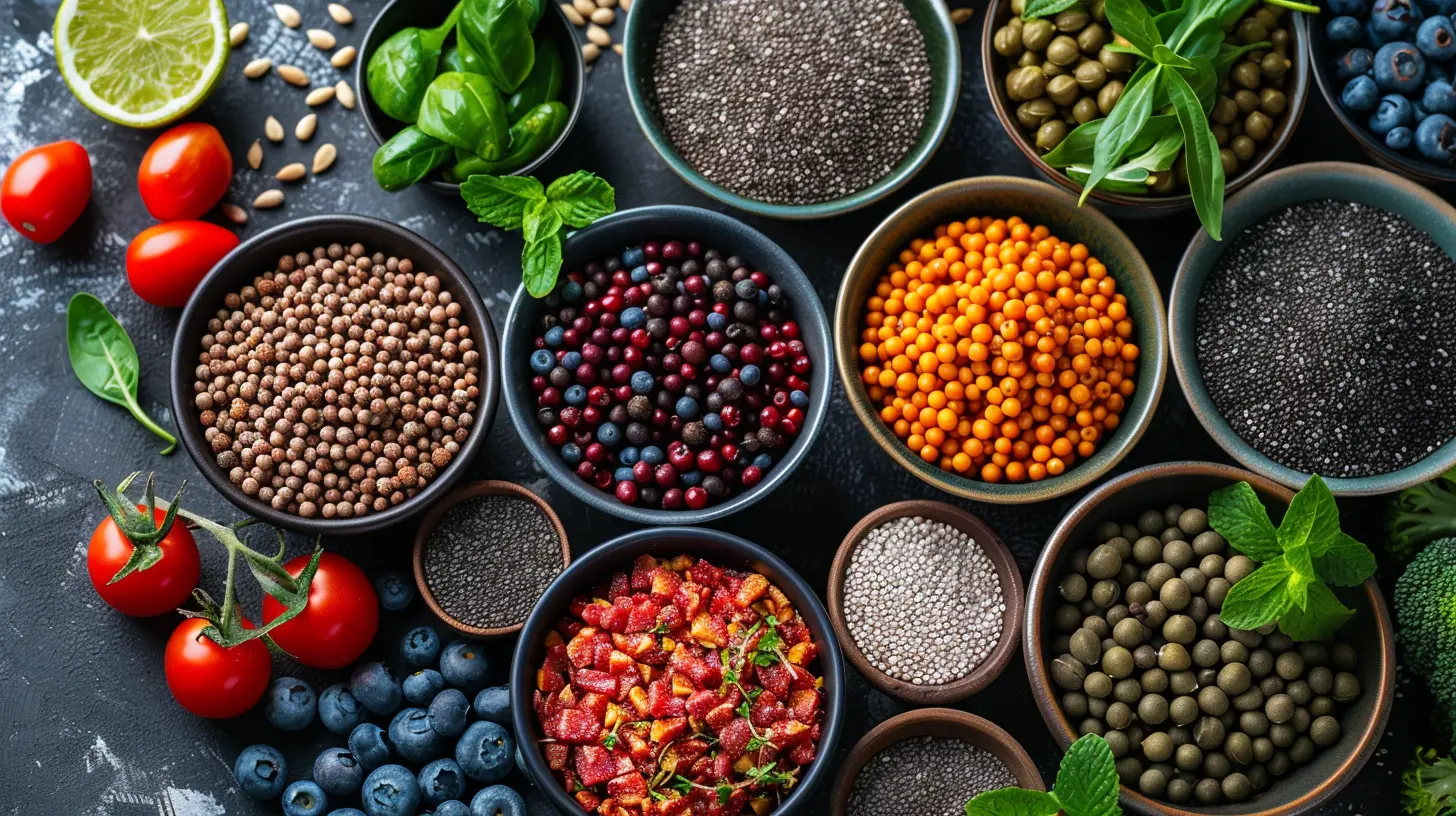
What Is Plant-Based Nutrition?
At its core, plant-based nutrition focuses on consuming predominantly plant-derived foods such as fruits, vegetables, whole grains, nuts, seeds, and legumes. Unlike strict vegan or vegetarian diets, a plant-based diet isn't necessarily about eliminating animal products entirely—rather, it prioritizes plants as the main source of nutrition.So, whether you're interested in going fully plant-based or just incorporating more plant foods into your meals, this approach can be tailored to fit your lifestyle. 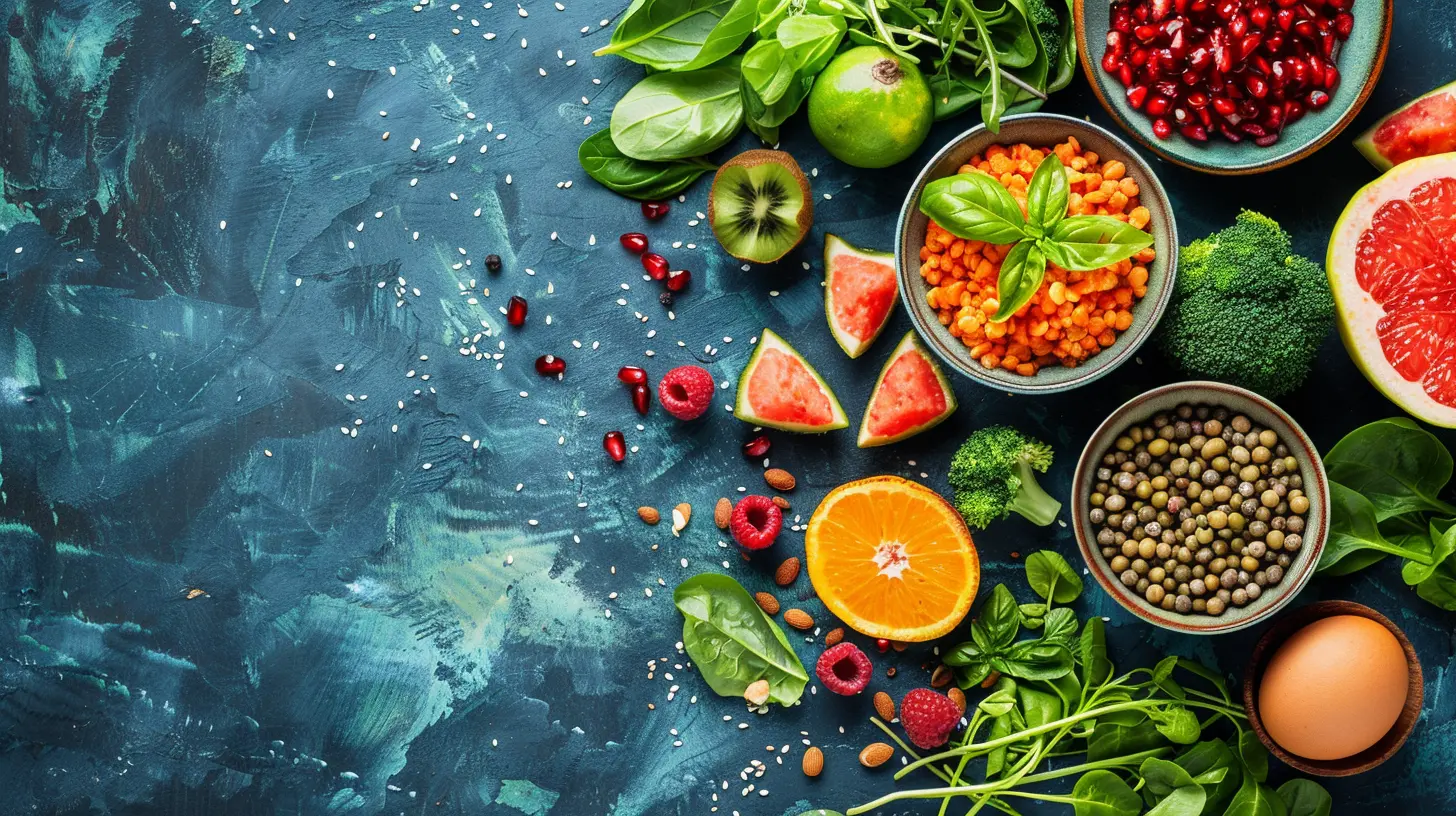
The Holistic Benefits of Plant-Based Nutrition
Switching to a plant-based diet isn't just about what you eat—it's about embracing a healthier, more harmonious way of living. Here’s how plant-based eating supports holistic wellness:1. Boosts Physical Health
A diet rich in whole, plant-based foods is packed with essential nutrients, antioxidants, and fiber. These contribute to:- Heart Health: Studies show that plant-based diets lower the risk of heart disease by reducing cholesterol levels and blood pressure.
- Better Digestion: High fiber content aids digestion and promotes a healthy gut microbiome.
- Stronger Immunity: Vitamins, minerals, and antioxidants in plants help strengthen your immune system, keeping illnesses at bay.
2. Enhances Mental Well-Being
Did you know the food you eat affects your mood and cognitive function? Plant-based diets are rich in brain-boosting nutrients like omega-3s (found in flaxseeds and walnuts), B vitamins, and magnesium, which help:- Reduce stress and anxiety
- Improve focus and mental clarity
- Lower the risk of depression
3. Supports Sustainable Living
Eating more plants isn't just good for you—it's great for the planet! Plant-based diets have a smaller environmental footprint compared to meat-heavy diets. They require fewer resources like water and land, reduce greenhouse gas emissions, and promote ethical food practices.4. Balances Energy & Vitality
If you often feel sluggish or experience energy crashes, switching to a plant-based diet can be a game-changer. Whole, nutrient-dense foods provide steady energy without the highs and lows caused by processed junk. Plus, plant-based eating helps maintain stable blood sugar levels, keeping you energized throughout the day.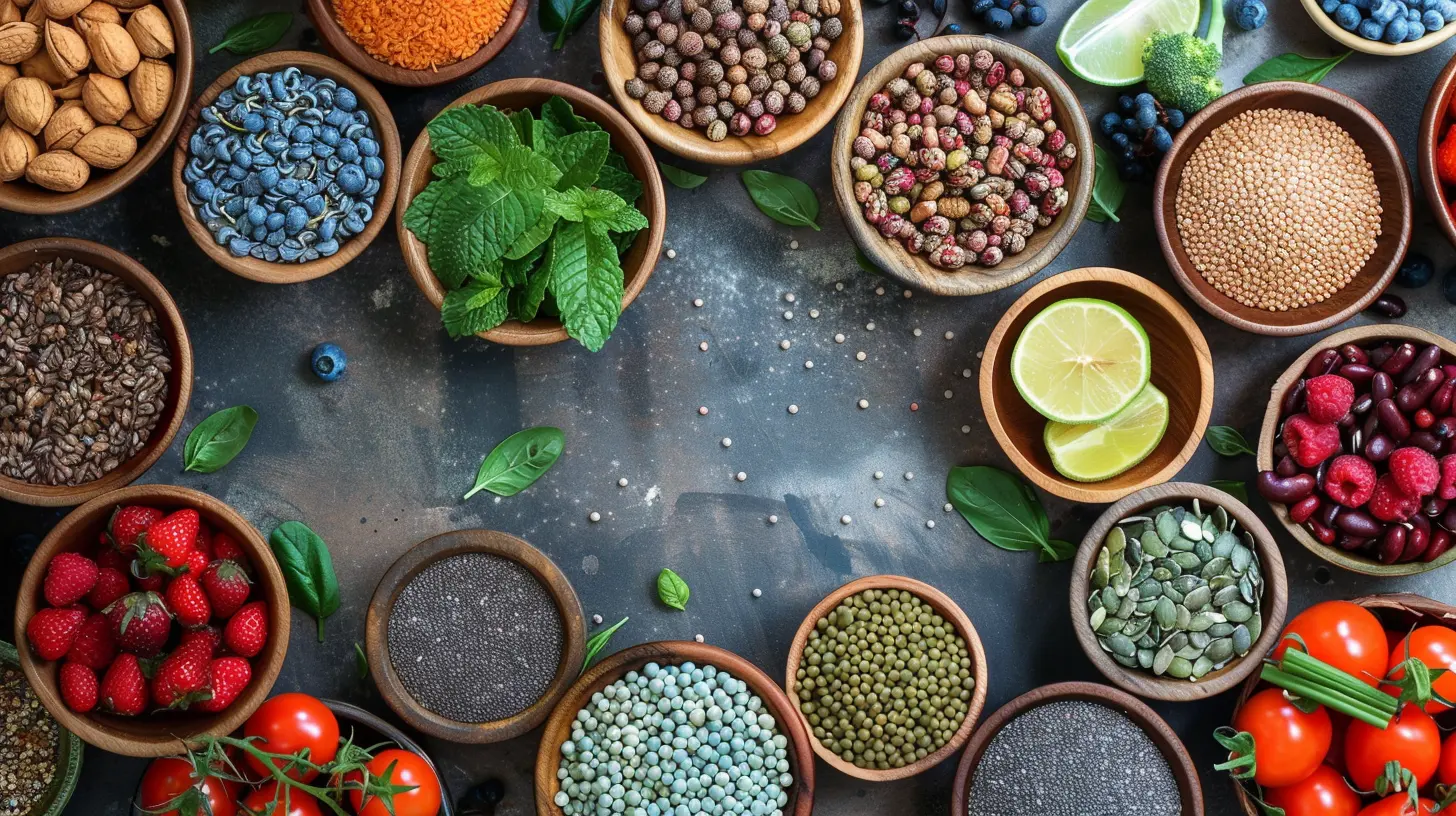
Essential Nutrients in a Plant-Based Diet
One common concern people have when considering a plant-based diet is: "Will I get enough nutrients?" Absolutely! As long as you eat a well-balanced variety of foods, you can meet all your nutritional needs. Here are some key nutrients to focus on:Protein
Plant-based sources of protein include:- Lentils
- Chickpeas
- Quinoa
- Tofu & Tempeh
- Nuts & Seeds
Iron
It's a myth that you need meat for iron. Great plant-based iron sources include:- Spinach
- Lentils
- Chia Seeds
- Pumpkin Seeds
(Pro tip: Pair iron-rich foods with vitamin C (like citrus fruits) to enhance absorption!)
Calcium
Dairy isn’t the only way to get calcium. Plant-based sources include:- Kale
- Broccoli
- Almonds
- Fortified plant milks
Vitamin B12
B12 primarily comes from animal products, so if you're fully plant-based, consider a supplement or fortified foods (like plant-based milk or nutritional yeast).Omega-3 Fatty Acids
Essential for brain health, omega-3s are found in:- Flaxseeds
- Walnuts
- Chia Seeds
- Hemp Seeds
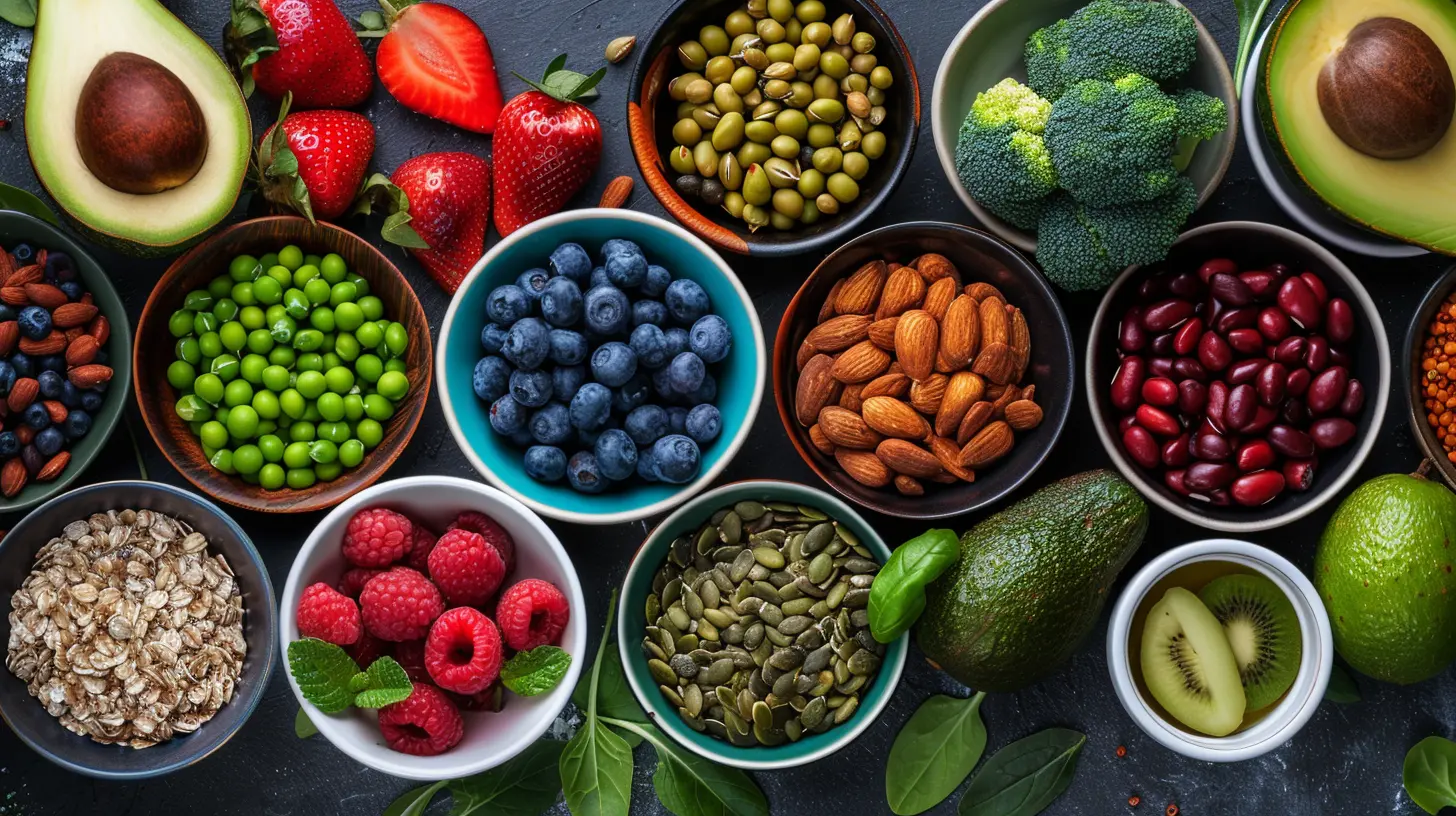
Making the Transition: Simple & Practical Tips
Thinking about going plant-based but don’t know where to start? No worries! Here are some easy steps to help you make a smooth transition:1. Start Small and Progress Gradually
You don’t have to go 100% plant-based overnight. Begin by adding more plant-based meals into your week and reducing processed foods and meat little by little.2. Experiment With New Foods
Variety is key! Try different grains, legumes, and vegetables to keep your meals interesting and nutrient-dense. Quinoa, lentils, and jackfruit are some fun ones to add to your plate.3. Master Plant-Based Swaps
Love burgers and cheese? No problem! There are plenty of plant-based alternatives:- Swap beef burgers for black bean or lentil patties.
- Use avocado or nut-based spreads instead of butter.
- Replace dairy milk with almond, oat, or soy milk.
4. Meal Prep & Plan Ahead
Planning your meals can help you avoid unhealthy choices when you're short on time. Cook large batches of meals, keep healthy snacks on hand, and stock up on plant-based pantry staples.5. Listen to Your Body
Everyone’s journey is different. Pay attention to how your body feels, and adjust your diet based on what works best for you.Debunking Common Myths About Plant-Based Diets
Let’s clear up some misconceptions that might be holding you back.1. “Plant-Based Diets Don’t Provide Enough Protein”
Wrong! There are plenty of plant-based protein sources. Legumes, nuts, seeds, and even vegetables contain enough protein to sustain a healthy lifestyle.2. “Plant-Based Eating is Expensive”
Not necessarily! Staples like beans, rice, and seasonal vegetables are often more affordable than processed foods and meat. A plant-based diet can actually help you save money.3. “You’ll Feel Weak or Tired”
If you're getting enough calories and nutrients, you’ll likely feel more energized than ever. Eating a varied diet rich in whole, plant-based foods fuels your body efficiently.A Day in the Life of a Plant-Based Diet
Need meal inspiration? Here’s an easy, delicious plant-based meal plan for a day:Breakfast:
- Overnight oats with almond milk, chia seeds, blueberries, and a drizzle of maple syrupLunch:
- Buddha bowl with quinoa, roasted chickpeas, avocado, cherry tomatoes, and tahini dressingSnack:
- Hummus with sliced cucumbers and bell peppersDinner:
- Lentil soup with a side of whole grain breadDessert:
- Banana nice cream (frozen bananas blended with a splash of plant milk and cacao powder)Final Thoughts
Eating plant-based for holistic wellness is more than just a trend—it's a powerful way to nourish your body, protect the planet, and elevate your overall well-being. Whether you're going fully plant-based or just incorporating more plant foods into your diet, every small step counts.So, are you ready to embrace a healthier, more vibrant lifestyle? Give it a try—your body (and the planet) will thank you!
all images in this post were generated using AI tools
Category:
WellnessAuthor:

Angelo McGillivray
Discussion
rate this article
3 comments
Winter McMillen
Exploring plant-based nutrition can enhance holistic wellness by providing essential nutrients, reducing inflammation, and promoting mental clarity, ultimately fostering a healthier, more balanced lifestyle.
June 20, 2025 at 3:17 AM

Angelo McGillivray
Thank you for highlighting the benefits! Embracing plant-based nutrition truly supports a holistic approach to wellness.
Graham Mitchell
Embracing plant-based nutrition not only nurtures our bodies but also reconnects us with nature, fostering a holistic wellness that transcends diet—cultivating mindfulness and harmony within ourselves and the environment.
June 16, 2025 at 4:30 PM

Angelo McGillivray
Thank you for your insightful comment! Embracing plant-based nutrition truly does enhance our connection to nature and promotes overall well-being.
Kaitlyn Dodson
Embracing plant-based nutrition not only nourishes the body but also fosters mental clarity and emotional balance, creating a holistic approach to wellness that aligns physical health with environmental sustainability and ethical living.
June 15, 2025 at 4:57 AM

Angelo McGillivray
Thank you for your insightful comment! I completely agree—plant-based nutrition truly supports not just physical health, but also mental and emotional well-being, while promoting sustainability and ethical living.
